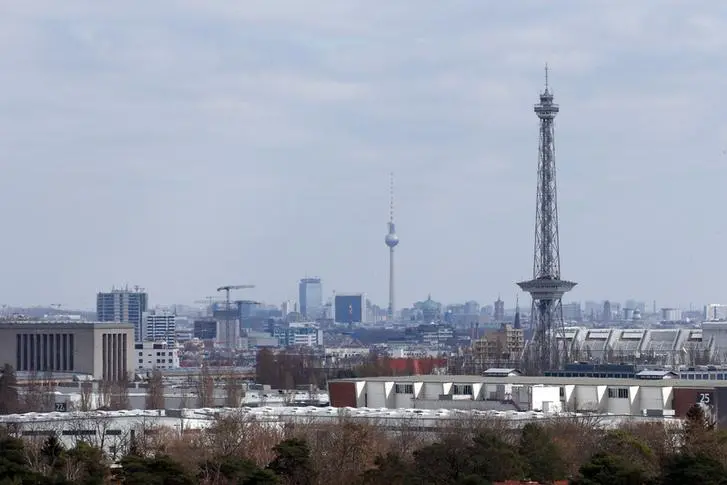PHOTO
The German economy is showing resilience in a challenging economic environment but growth will remain muted this year, the DIHK Chambers of Commerce and Industry said on Monday, keeping its forecast for GDP to stagnate in 2023.
"Signs of a broad-based upswing continue to be missing," said Ilja Nothnagel, a DIHK board member, while presenting the report in Berlin.
Despite high energy prices, rising interest rates and the war in Ukraine, companies are showing remarkable resilience. However, the outlook for the coming twelve months remains gloomy, according to a DIHK survey of 21,000 German companies.
As at the beginning of the year, 34% of the companies in the DIHK survey rated their situation as good, 51% assessed their current business situation as satisfactory and 15% as poor. The resulting score of 19 points is slightly below the long-term average of 21 points, DIHK said.
"Overall, we have to conclude that the German economy is lacking impetus," Nothnagel said. "The global economy and domestic demand are unfortunately failing to provide any impetus at the moment."
He added that a strengthening of the domestic economy is necessary. "We urgently need new impetus for private investment, but also for infrastructure development," Nothnagel said.
Companies continue to rate energy and raw material prices as the greatest business risk, although the trend is slightly receding. Currently, just under two thirds of companies see this as a risk, compared with 72% at the beginning of the year.
The second factor that worries companies is labour costs, due not only to the shortage of skilled workers, but also to rising inflation, the DIHK said. Of the companies surveyed, 53% cited labour costs as a business risk, up from 49% in the previous survey. (Reporting by Maria Martinez Editing by Alexandra Hudson)





















